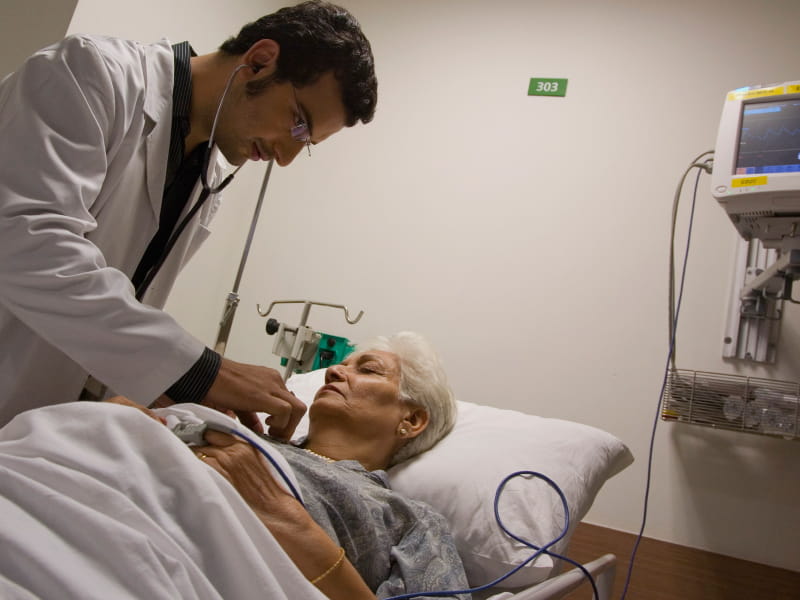Cardiac arrests in hospitals may be more common than previously thought
By American Heart Association News

Tens of thousands more people than previously believed may be having cardiac arrests in hospitals, a new analysis says.
Researchers estimate about 292,000 adult in-hospital cardiac arrests happen in the United States each year. That's 38% higher than earlier estimates. The numbers come from a model developed for estimating cardiac arrests, using data from two American Heart Association registries.
The reason for the change is not clear.
"Unfortunately, the data does not provide an explanation for the increase in adult in-hospital cardiac arrest," study co-author Dr. Lars W. Andersen said in a news release, "but it is likely due to many factors and may reflect an increase in actual events or in the reporting of cases over time."
Cardiac arrest, which occurs when the heart malfunctions and stops beating, is different from a heart attack, which occurs when blood flow to the heart is blocked.
The study, published Tuesday in Circulation: Cardiovascular Quality and Outcomes, also estimated 15,200 "in-hospital events" involved children. Of those, 7,100 cases were cardiac arrests where the patient had no pulse, and 8,100 were cases where the patient had a pulse but still required CPR.
Compared to previous reports, the number of pulseless pediatric in-hospital cardiac arrests is approximately 18% higher in the new study. Researchers found no indication the number of such events has increased over time; the new estimates are based on a larger database.
In 2011, the last time cardiac arrest data from the two registries was analyzed, the estimate was 211,000 in-hospital cardiac arrests in adults and 6,000 in children.
Andersen is an associate professor at Aarhus University in Denmark who oversaw the study as a visiting researcher at Beth Israel Deaconess Medical Center's department of emergency medicine in Boston. He said the findings may suggest basic life support and advanced cardiac life support training programs – which traditionally have focused on out-of-hospital resuscitation – may need to be expanded to include potential in-hospital responders.
If you have questions or comments about this story, please email [email protected].





